Radiant Solutions: Natural Remedies for Hyperpigmentation That Actually Work
Hyperpigmentation, marked by darkened areas on the skin, is a common concern that affects individuals of all ages. Whether caused by sun exposure, hormonal changes, or inflammation, hyperpigmentation can be distressing and challenging to treat. While commercial skincare products are widely available, many people seek natural remedies as a safer, more holistic approach to managing their skin concerns. In this comprehensive guide, we'll explore various natural remedies that have shown promise in reducing hyperpigmentation, focusing on their effectiveness, application, and potential benefits.
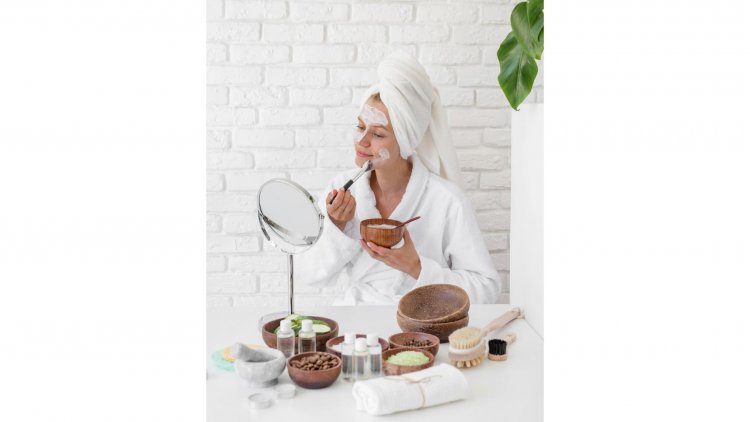
The Science Behind Hyperpigmentation
Hyperpigmentation occurs when excess melanin, the pigment responsible for skin color, is produced in certain areas of the skin. This can result from various factors, including:
- Sun Exposure: Prolonged exposure to UV rays stimulates melanin production, leading to sunspots or age spots.
- Hormonal Changes: Conditions like melasma, often triggered by pregnancy or birth control pills, cause dark patches, particularly on the face.
- Inflammation: Post-inflammatory hyperpigmentation (PIH) results from skin injuries or inflammatory conditions like acne, leading to dark spots once the inflammation subsides.
Understanding the underlying causes of hyperpigmentation is essential for selecting the most effective natural remedies.

- Lemon Juice: Nature's Brightener
Lemon juice has long been touted as a natural skin lightener. Its high vitamin C content and natural acids make it a popular choice for addressing hyperpigmentation.
How It Works:
- Vitamin C: This antioxidant helps reduce melanin production and promotes a more even skin tone.
- Citric Acid: It acts as a mild exfoliant, removing dead skin cells and encouraging new cell growth.
Application Tips:
- Apply fresh lemon juice directly to the affected areas using a cotton ball.
- Leave it on for about 10-15 minutes before rinsing off with lukewarm water.
- Use 2-3 times a week, as overuse can lead to skin irritation.
Considerations:
- Lemon juice can make your skin more sensitive to the sun. Always apply sunscreen after using lemon juice.
- Conduct a patch test before widespread application to ensure you don’t have an adverse reaction.
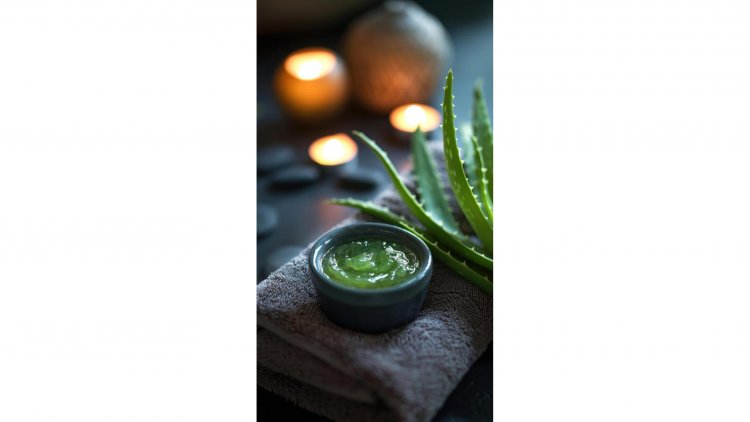
- Aloe Vera: Soothing and Healing
Aloe vera is renowned for its soothing and healing properties. It not only helps in calming the skin but also in reducing hyperpigmentation.
How It Works:
- Aloin: A compound found in aloe vera that has been shown to inhibit melanin production.
- Vitamins and Minerals: Aloe vera is rich in vitamins A, C, and E, which help improve skin health and reduce pigmentation.
Application Tips:
- Apply fresh aloe vera gel directly from the plant to the affected areas.
- Leave it on for 20-30 minutes before rinsing with water.
- Use daily for the best results.
Considerations:
- Ensure you are using pure aloe vera gel without added chemicals or preservatives.
- Aloe vera is generally safe for all skin types but discontinue use if you notice any irritation.
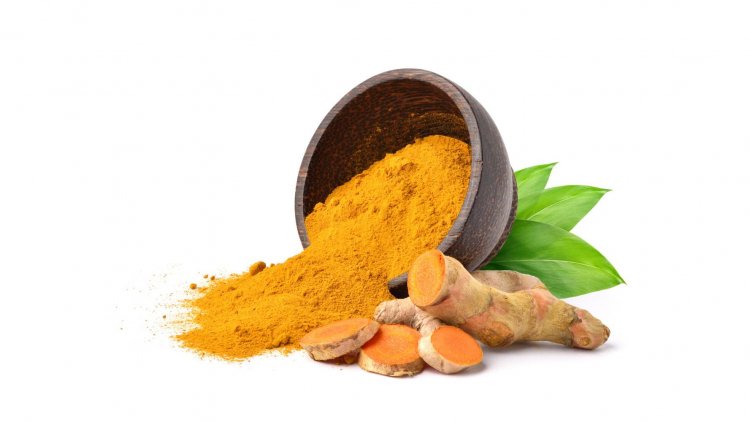
- Turmeric: The Golden Healer
Turmeric, a spice often used in cooking, has powerful anti-inflammatory and antioxidant properties. Its active compound, curcumin, has been shown to help with hyperpigmentation.
How It Works:
- Curcumin: This compound inhibits melanin production and can help lighten dark spots.
- Anti-Inflammatory: Reduces inflammation that may contribute to hyperpigmentation.
Application Tips:
- Create a paste by mixing turmeric powder with honey or yogurt.
- Apply the paste to the affected areas and leave it on for about 15-20 minutes.
- Rinse off with warm water.
Considerations:
- Turmeric can stain the skin temporarily, so it’s best to use this remedy before bedtime.
- Conduct a patch test to check for any allergic reactions.
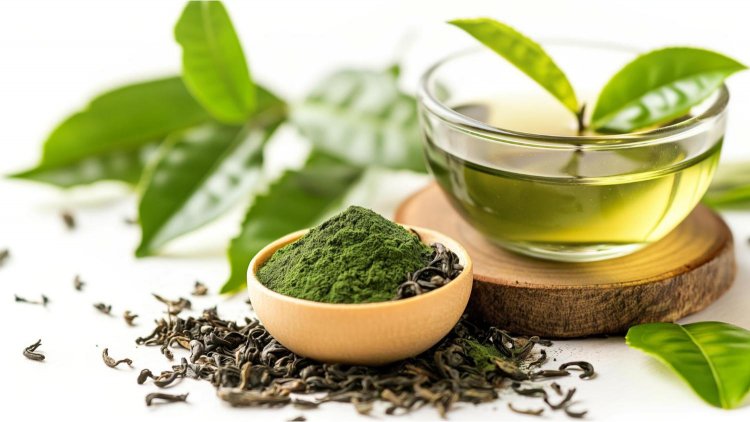
- Green Tea Extract: Antioxidant Power
Green tea extract is another natural remedy with promising effects on hyperpigmentation. Its high concentration of antioxidants helps combat oxidative stress that contributes to skin discoloration.
How It Works:
- Catechins: These antioxidants help reduce melanin production and protect the skin from UV damage.
- Anti-Inflammatory: Green tea extract helps soothe the skin and reduce redness.
Application Tips:
- Use green tea extract in the form of a cream or serum that contains concentrated green tea.
- Alternatively, you can make a green tea infusion, let it cool, and use it as a toner.
Considerations:
- Look for products with high-quality green tea extract to ensure effectiveness.
- Green tea is generally well-tolerated but consult with a dermatologist if you have sensitive skin.
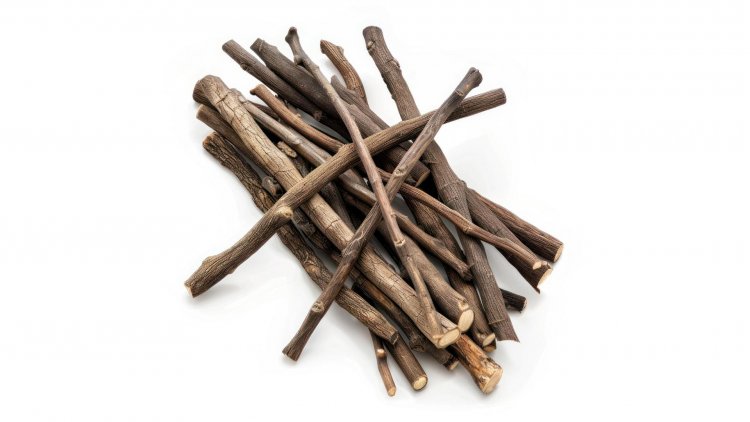
- Licorice Root: Gentle and Effective
Licorice root has been used in traditional medicine for centuries and is known for its skin-lightening properties. It contains glabridin, which helps reduce melanin production.
How It Works:
- Glabridin: This compound inhibits tyrosinase, an enzyme involved in melanin production.
- Anti-Inflammatory: Helps calm the skin and reduce pigmentation.
Application Tips:
- Apply licorice root extract or cream to the affected areas.
- Use as directed, usually once or twice daily.
Considerations:
- Licorice root is generally safe but always conduct a patch test first.
- Some people may experience allergic reactions, so use cautiously.

- Vitamin E: The Skin Healer
Vitamin E is a well-known antioxidant that helps protect the skin from damage and supports healing. It can be particularly effective in reducing the appearance of dark spots.
How It Works:
- Antioxidant Protection: Protects the skin from oxidative stress and helps lighten dark spots.
- Healing Properties: Supports the healing of damaged skin and reduces pigmentation.
Application Tips:
- Apply vitamin E oil directly to the affected areas before bedtime.
- Alternatively, use skincare products that contain vitamin E as an active ingredient.
Considerations:
- Vitamin E oil can be thick and greasy; consider using it in conjunction with other lighter products.
- Conduct a patch test to ensure no allergic reactions occur.
- Kojic Acid: Natural Skin Lightener
Kojic acid is a natural skin-lightening agent derived from fungi. It is effective in reducing hyperpigmentation and brightening the skin.
How It Works:
- Inhibition of Tyrosinase: Kojic acid inhibits the enzyme tyrosinase, which is crucial in melanin production.
- Brightening: Helps lighten dark spots and improve overall skin tone.
Application Tips:
- Use products containing kojic acid, such as serums or creams, as directed.
- Typically applied twice daily.
Considerations:
- Kojic acid can sometimes cause irritation or sensitivity; start with a lower concentration.
- Ensure you use sunscreen, as kojic acid can increase sensitivity to the sun.
- Papaya: Enzyme Power
Papaya is not only a delicious fruit but also a potent ingredient in skincare. Its enzyme, papain, helps exfoliate the skin and reduce pigmentation.
How It Works:
- Papain: This enzyme helps remove dead skin cells and lighten dark spots.
- Vitamin A and C: These vitamins support skin health and even out skin tone.
Application Tips:
- Mash fresh papaya and apply it directly to the skin.
- Leave it on for 15-20 minutes before rinsing with lukewarm water.
Considerations:
- Papaya is gentle and suitable for most skin types.
- Conduct a patch test to ensure you do not have any allergic reactions.
- Apple Cider Vinegar: Acidic Aid
Apple cider vinegar (ACV) is renowned for its various health benefits, including its potential to lighten hyperpigmentation.
How It Works:
- Acetic Acid: Helps exfoliate the skin and lighten dark spots.
- Natural Astringent: Helps balance skin tone and reduce oiliness.
Application Tips:
- Dilute ACV with water and apply it to the affected areas using a cotton ball.
- Leave it on for a few minutes before rinsing.
Considerations:
- Always dilute ACV to prevent irritation.
- Conduct a patch test before widespread application.
- Bearberry Extract: Whitening Wonder
Bearberry extract is a lesser-known but effective natural remedy for hyperpigmentation. It contains arbutin, which helps lighten dark spots.
How It Works:
- Arbutin: Inhibits melanin production and brightens the skin.
- Antioxidants: Provides additional skin protection and improvement.
Application Tips:
- Use bearberry extract products, such as serums or creams, according to the product instructions.
- Generally applied twice daily.
Considerations:
- Bearberry extract is typically well-tolerated but always perform a patch test first.
- Look for high-quality formulations for best results.
Maximizing the Benefits of Natural Remedies
To achieve the best results with natural remedies for hyperpigmentation, consider these practical tips:
- Consistency is Key:
- Regular Application: Natural remedies often require consistent application over several weeks or months to see noticeable results. Incorporate the remedy into your daily or weekly skincare routine.
- Patience: Unlike some chemical treatments, natural remedies may take time to show significant improvements. Avoid the temptation to switch remedies frequently; give each treatment adequate time to work.
- Patch Testing:
- Allergic Reactions: Always perform a patch test before applying any new product or remedy to a larger area of your skin. Apply a small amount to a discreet area, like the inside of your wrist, and wait 24 hours to ensure there’s no adverse reaction.
- Sun Protection:
- Daily Sunscreen Use: Many natural remedies can make your skin more sensitive to the sun. Protect your skin by using a broad-spectrum sunscreen with at least SPF 30 every day, even on cloudy days. Reapply sunscreen every two hours when outdoors.
- Hydration and Moisturization:
- Keep Skin Hydrated: Maintaining proper hydration helps support the skin’s healing processes and enhances the effectiveness of remedies. Drink plenty of water and use moisturizers suited to your skin type.
- Healthy Lifestyle:
- Balanced Diet: A diet rich in antioxidants, vitamins, and minerals supports overall skin health and can complement the effects of natural remedies. Include foods like fruits, vegetables, nuts, and seeds in your diet.
- Adequate Sleep: Ensure you get sufficient rest to allow your skin to repair and rejuvenate.
Additional Natural Ingredients to Explore
While the remedies discussed above are effective, several other natural ingredients also show promise in reducing hyperpigmentation:
- Niacinamide (Vitamin B3):
- Brightening Properties: Niacinamide helps to lighten dark spots and even out skin tone. Look for serums or creams containing niacinamide and use them regularly.
- Rosehip Oil:
- Regenerative Effects: Rich in vitamin A and essential fatty acids, rosehip oil helps improve skin texture and tone. Apply it directly to the skin or look for products that include it as an ingredient.
- Mulberry Extract:
- Skin Brightening: Mulberry extract contains compounds that inhibit melanin production, helping to lighten dark spots. It is often used in skincare products targeting hyperpigmentation.
- Grape Seed Extract:
- Antioxidant Protection: Grape seed extract offers antioxidant protection and can help reduce the appearance of dark spots. Incorporate products containing grape seed extract into your skincare routine.
Common Mistakes to Avoid
When using natural remedies for hyperpigmentation, avoid these common pitfalls:
- Overuse of Remedies:
- Avoid Irritation: Using natural remedies too frequently can lead to skin irritation and sensitivity. Stick to the recommended frequency for each remedy to avoid adverse effects.
- Ignoring Professional Advice:
- Consult a Dermatologist: If your hyperpigmentation persists or worsens, consult a dermatologist. They can provide tailored advice and recommend additional treatments if necessary.
- Skipping Sunscreen:
- Essential Protection: Sunscreen is crucial when treating hyperpigmentation. Skipping it can counteract the benefits of natural remedies and exacerbate skin discoloration.
- Neglecting Skin Care Routine:
- Holistic Approach: Natural remedies work best as part of a comprehensive skincare routine. Cleanse, exfoliate, and moisturize your skin regularly to support overall skin health.
Natural remedies for hyperpigmentation offer a range of options for those seeking to improve their skin’s appearance without relying solely on commercial products. From the brightening effects of lemon juice to the healing properties of aloe vera, these remedies harness the power of nature to address dark spots and uneven skin tone. Incorporating these treatments into a consistent skincare routine, while taking precautions such as patch testing and sun protection, can lead to a more radiant and even complexion.
However, it's important to remember that natural remedies may work at different rates for different individuals. The key is to be patient, consistent, and mindful of how your skin responds to these treatments. Always consider consulting a dermatologist to tailor the best approach for your specific skin needs and to ensure that any underlying conditions are addressed.
Disclaimer: The information provided in this article is for educational purposes only and should not be considered medical advice. If you have any health concerns or are experiencing symptoms, it is important to consult with a healthcare professional, such as a doctor or clinic, for proper diagnosis and treatment. Always seek the advice of your doctor or other qualified health provider with any questions you may have regarding a medical condition. Do not disregard professional medical advice or delay in seeking it because of something you have read in this article.
What's Your Reaction?





















